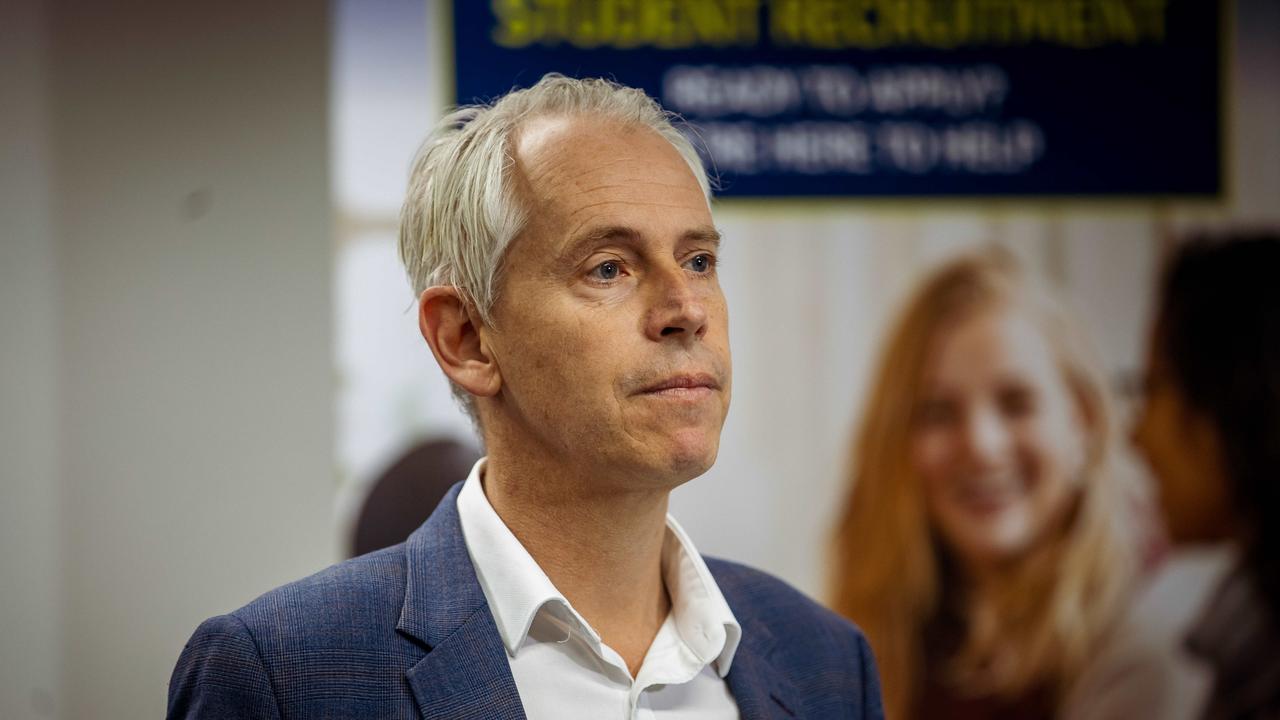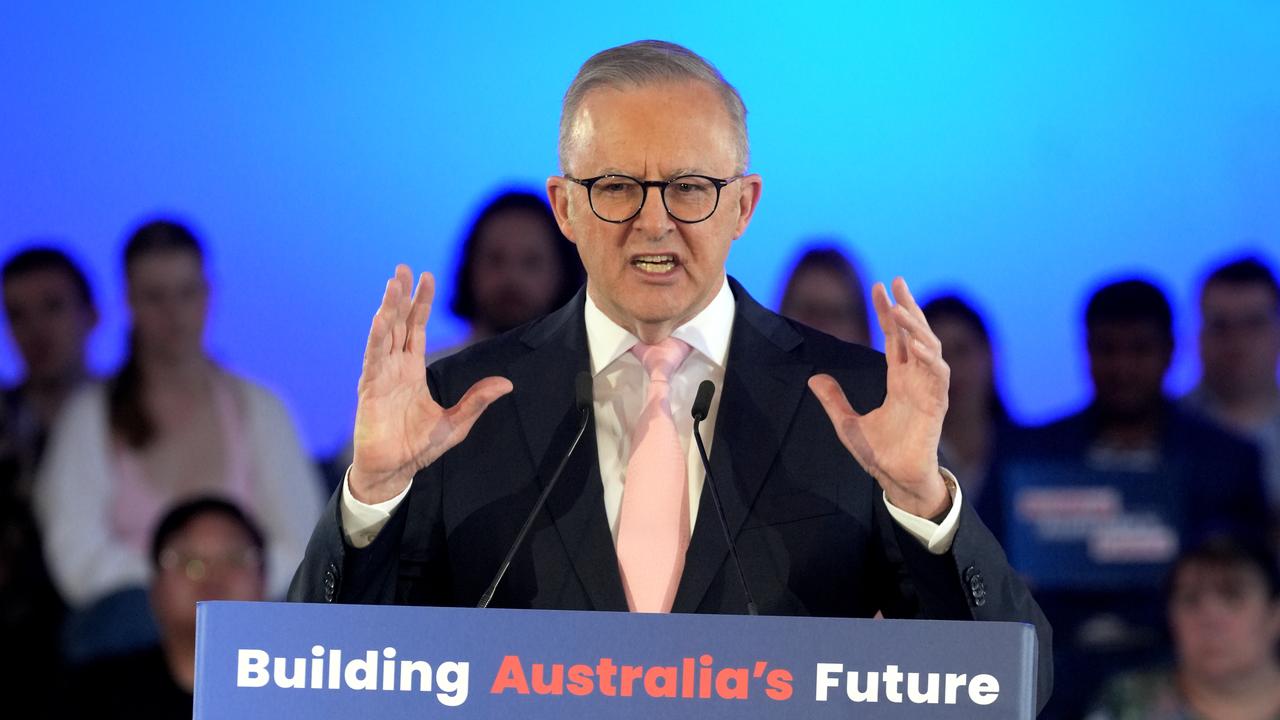Federal budget 2022: Josh Frydenberg doubles down on cost of living
Federal treasurer Josh Frydenberg has launched a surgical strike on the cost of living, using his election year budget to target voter pain points.
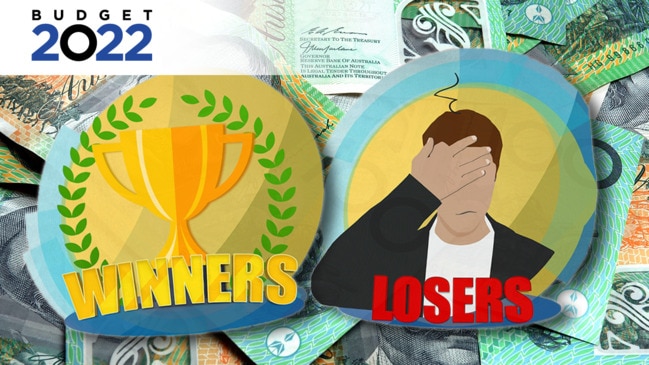
Treasurer Josh Frydenberg has launched a surgical strike on the cost of living, using his election year budget to target voter pain points are most keenly felt in the Western Sydney and Hunter seats that will decide the next election.
With a projected surge in people’s pay packets expected to outpace inflation from next year, the Morrison government is planning to literally wage war on the ALP and challenge Anthony Albanese to convince voters his Labor team could do better.
The key highlights of Mr Frydenberg’s plan include:
• Taking dead aim at Labor in a cost of living battler’s budget
• Slashing fuel excise, bolstering skills training and strengthening parental leave
• Seeing pay packets start beating inflation from next year
• All of which is being paid off by the post-pandemic bounce and surging commodities prices
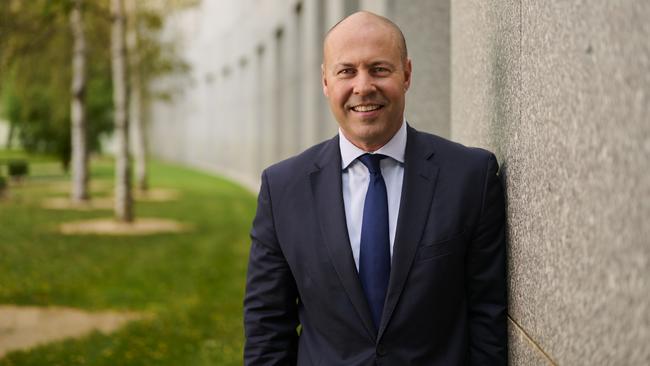
PETROL PAIN
Headlining the government’s battle plan is a cut to the fuel excise tax.
A six month halving of the fuel excise tax – by a very precise 22.1 cents per litre – takes dead aim at voters’ most obvious cost of living frustration, particularly for families and business owners in car-dependent suburbs.
Over the course of the reprieve voters are expected to save hundreds at the bowser, with fleet dependent businesses even better off and the ACCC tasked with making sure the price cut isn’t trousered by servos and oil companies.
Not only is it a direct shot at bolstering household budgets, it is also expected to pull down the overall headline inflation number by almost half a percentage point as it eases the cost of moving goods around Australia.
And with an election due to be called soon, perhaps within days, the excise cut raises the stakes for Opposition Leader Anthony Albanese as it raises the obvious question of whether a future Labor government would keep or kill a signature Morrison measure.
Along with direct cash payments to low and middle income families, the Budget is a clear statement of intent that the next election will be fought in voters’ pocketbooks.
Electrician Jacob Roberts, 26, has felt the burden of fuel prices at the bowser spending hours every day on the road for work.
The CCF Electrical Services employee, from Cowan in Sydney’s north, said petrol prices were in the back of every employee’s mind.
“I’m lucky because my boss covers fuel expenses for work, but when you’re driving across the city for jobs it really adds up,” Mr Roberts said.
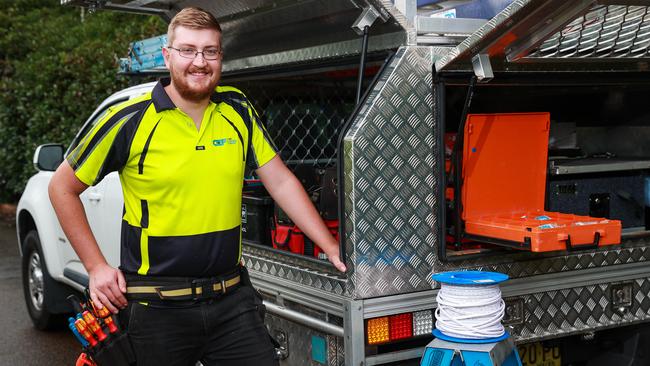
FAMILIES FIRST
The Treasurer’s speech also showed the government has young Australians, particularly those starting families and careers and trying to get on the property ladder, squarely in its sights.
A reworking and expansion of the paid parental leave scheme means couples who’ve just had a baby can take an extra two weeks off, for a total of 20 weeks leave, but they will be able to split that leave as well.
The government reckons that 183,000 families will benefit when the change is implemented, with 65,000 dads and partners also able to enjoy the increased flexibility and time with bub, all at a relatively scant cost to the taxpayer of $346 million.
Politically too, it sets up a challenge to Labor which has an uncosted ambition to give parents up to six months leave which the government claims – perhaps opportunistically – could cost upwards of $45 billion.
An expansion of the government’s Home Guarantee Scheme from 20,000 to 50,000 places to allow eligible first home buyers to get into a property with a smaller deposit will also be welcomed by many, though more will have to be done by both the federal government and the states to ensure the houses are there to buy.
The Ryvchin family might be in Australia’s highest tax bracket but they are still feeling the pinch of price increases to food and fuel.
Mum Vicki has had to make adjustments to feed her family of five, but said the weekly budget for groceries had still blown out by “at least” $100.
“For families (price increases) are having a very significant impact on the household … I’m having to work more, work harder, take more jobs to make it all affordable,” she said.
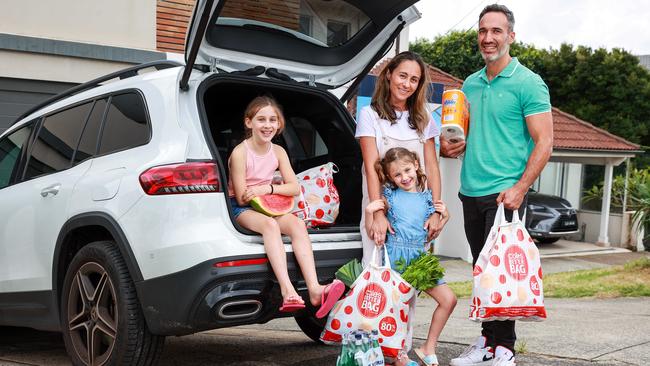
NATIONAL SECURITY
While the election campaign may be a metaphorical war, the Budget also recognises that given the situation in Ukraine and tensions over Taiwan, we are in what the government’s handouts call gently, “an uncertain strategic environment”.
Beyond the usual commitments to keep defence spending above two per cent of GDP, Mr Frydenberg also announced a major boost to the Australian Signals Directorate via Project REDSPICE – short for Resilience, Effects, Defence, Space, Intelligence, Cyber, Enablers, the largest ever commitment to cyber warfare.
Reflecting a growing concern in the intelligence community that Australia’s critical infrastructure, from power and water to banking and food logistics, could be taken offline by hostile actors, damaging the nation and stopping us from being able to respond to a regional crisis, REDSPICE represents a massive investment in fighting cyber threats and maintaining digital sovereignty.
While still not landing on a location for a future east coast nuclear sub base, the Budget also trumpeted investment into new drone surveillance systems, Chinook helicopters, Abrams tanks, and combat engineering vehicles.
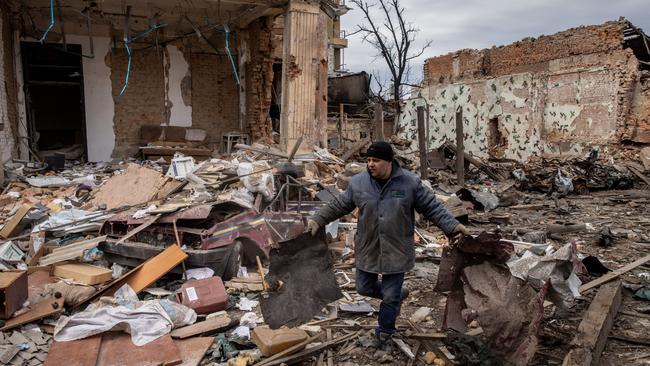
JOBS, JOBS, JOBS
The ammunition for Mr Frydenberg’s battle plan is Australia’s strong economic performance through the pandemic – dreadful forecasts of about nine per cent unemployment thankfully never came true, to be replaced by a historically strong jobs market – but also some very optimistic predictions about the future.
Pushing the jobs narrative, particularly in blue collar suburbs in places like Western Sydney and the Hunter, the Treasurer announced $3.7 billion for 800,000 training places, and a new incentive system that will give small businesses a 20 per cent tax deduction bonus when they pay to skill up workers.
And in a reversal of last year’s budget which expected to see the economy boosted by the onshore spending of Australians blocked from leaving the country, this year’s budget is looking forward to unblocking skills bottlenecks by welcoming back migrants.
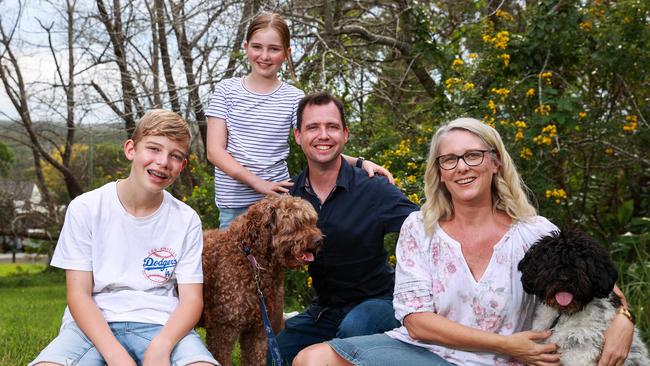
Prime Minister Scott Morrison might call Kirribilli House home but when it comes to his electorate, he has to share it with another set of Morrisons.
Paul, Mara, Jacob and Gabi Morrison — along with their dogs Dyson and Milo — live in the Sutherland Shire, right in the heart of the Cook electorate,
They’re not related to the PM but the Morrisons are just the type of family Treasurer Josh Frydenberg is targeting in this federal budget with measures such as the tax offset and the fuel excise cuts.
Compared to the Prime Minister’s sizeable wage of $549,250, the Morrisons are middle income earners, bringing in “around $100,000” a year to support their family.
This means field operations manager Paul and his photography album creator wife Mara
will be eligible for the extra $420 tax offset for low to middle income earners, which will see them pocket up to $3000 in total at tax time
THE ECONOMY
Treasury says inflation is expected to start coming down off this year’s high from 2022-23, easing from more than four to just 2.5 per cent in coming years — a forecast which presumes supply chain bottlenecks get sorted, global crises settle down and the United States’ increasingly scary consumer price rises don’t bleed across the Pacific.
At the same time, the government is projecting wage rises to outpace inflation to the point where the average worker can expect compounding increases to grow their pay by more than 17 per cent by 2025-26 from current levels.
Ironically, while Russia’s invasion of Ukraine has caused havoc with petrol prices, it has also seen demand for other energy commodities including coal surge.
Mr Frydenberg revealed on Tuesday that if current prices for coal and other minerals remain at their current levels for the next six months, the government’s bottom line will be a further $30 billion better off.
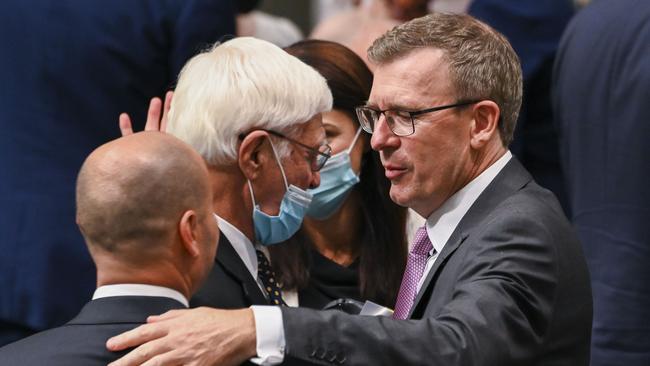
ELECTION FEVER
While the government prefers not to talk about Tuesday night’s speech as an election budget, it is clear that the Treasurer has outlined the themes of the coming campaign: Safety and security, families and jobs.
Mr Albanese, who delivers his budget reply Thursday, has been careful to lower expectations and describe his event as “a speech, not a budget”.
But in the coming weeks the fight will well and truly be on to see who can deliver the preferred plan for the country’s economic future.
Mr Frydenberg is counting on his numbers being hard to top.
More Coverage
Originally published as Federal budget 2022: Josh Frydenberg doubles down on cost of living




